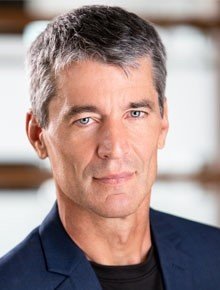TLL Spring 2024 Series
April 18th- May 23rd
As promised, you can choose from 3 options to enjoy informative, provocative and timely lectures covering a broad range of issues from climate change to psychedelic drugs in medicine to great works of art and more!
Option 1 – Zoom series
3 Zoom lectures - $20 CAD
Thursdays: April 18, April 25 and May 2 2:00 to 3:30 p.m.
Option 2 – In-Person series
3 In-Person Lectures - $30 CAD
Thursdays: May 9, May 16 and May 23 1:30 to 3:30 p.m.
Schwartz/Reisman Centre, 9600 Bathurst Street, Vaughan (Limited Seating)
Option 3 – Combo series
3 Zoom Lectures + 3 In-Person lectures - $40 CAD Early Bird Registration Until Feb 23rd. $45 CAD After Early Bird Deadline
Treasured Art Works: Sharing My Passion
Dr. Alison McQueen
April 18, 2024 - 2:00-3:30 p.m. Online
From the awe-inspiring Caves at Ajanta, India, to the meditative Zen Gardens in Kyoto, Japan, to the compelling installation Fountain by Indigenous artist Belmore in Canada, join Alison McQueen, Professor of Art History at McMaster University, as she reflects on some of her favourite works of art.
Professor McQueen will share from the enriching professional opportunities her teaching and research have created for her to study and experience incredible art, historical and contemporary, in over thirty countries, that span every continent.
Alison McQueen is Professor of Art History in the Department of History at McMaster University. She is an award–winning teacher and scholar, author of four books including: Empress Eugénie and the Arts and The Rise of the Cult of Rembrandt.
Professor McQueen is co-author of a further two books and has published, internationally, over a dozen book chapters, essays and articles.
She has been an invited speaker at museums in France, England, Germany, and the Netherlands. She has also been a Visiting Scholar at the American Academy in Rome and a Visiting Research Fellow at the University of Edinburgh.
Professor McQueen has held four multi–year research grants from the Social Sciences and Humanities Research Council of Canada and has received scholarships from several international agencies in the United Kingdom and the United States.
Raging Infernos: Understanding the Dynamics & Health Impacts of Wild Fires
Dr. Mike Flannigan and Dr. Sarah Henderson
April 25, 2024 – 2:00-3:30 p.m. Online
Wildfires happen frequently in many regions of the world. This session features two experts in the field, Dr. Flannigan speaking about the causes and physical outcomes of wildfires and Dr. Henderson outlining their health impacts.
These fires are the result of interactions between climate/weather, fuels (vegetation) and people. Climate change is creating a warmer world which makes fires easier to start and to spread. More available fuel leads to higher intensity fires that are difficult and sometimes impossible to extinguish. Dr. Flannigan will present an overview of the 2023 Canadian fire season along with expectations for the 2024 fire season. We will gain a better understand of why we will have to learn to live with wildfires.
Beyond the damage to forests and to human habitation, wildfires and smoke are a significant and growing threat to physical and mental wellbeing in Canada. Smoke pollution has been associated with a wide range of acute health endpoints, and evidence on more chronic effects is rapidly emerging.
Dr. Henderson examines wildfire and smoke exposure, health effects, effective public health interventions and considerations for the future.
Mike Flannigan is the BC Innovation Research Chair for Predictive Services, Emergency Management and Fire Science at Thompson Rivers University and the Scientific Director of the Canadian Partnership for Wildland Fire Science. He received his BSc (Physics) from the University of Manitoba, his MS (Atmospheric Science) from Colorado State University and his PhD (Plant Sciences) from Cambridge University.
Our speaker has been studying fire and weather/climate interactions including the potential impact of climatic change and lightning-ignited forest fires for over 40 years. Dr. Flannigan has published over 300 journal papers, book chapter and reports.
Dr. Sarah Henderson is the Scientific Director of Environmental Health Services at the BC Centre for Disease Control (BCCDC) and the Scientific Director of the National Collaborating Centre for Environmental Health (NCCEH). She is also an associate professor at the UBC School of Population and Public Health.
Dr. Henderson oversees a broad program of applied research, surveillance, and knowledge translation to support evidence-based environmental health policy and practice in BC and across Canada. She has been studying the population health effects of wildfire smoke for more than 20 years.
Navigating the Coming Challenges of Housing, Health and Aging
Dr. James Dunn
May 2, 2024 - 2:00-3:30 p.m. Online
It’s often said that housing is an important determinant of health, and that for older adults, aging in place is preferable to other options, notably institutional care. Despite these beliefs, there are poor connections between housing policy, health policy and aging policy. With the current housing crisis, we must gain a better understanding of the kinds of housing challenges older adults face, the number of people involved and the capacity for our systems to meet people's needs in ways that ensure their ability to live independently as long as possible.
This reality is on our doorstep. By 2041, the 80+ population in the Greater Golden Horseshoe will expand from the current 350,000 to over 1 million. Most will live in car-dependent suburbs. They will need age-appropriate housing, neighbourhood and transportation alternatives and safe and reliable pathways to get there.
Dr. Dunn discusses the challenges and opportunities facing these planning imperatives.
James R. Dunn, Ph.D. (Jim) is a Professor in the Department of Health, Aging & Society and Associate Dean Research in the Faculty of Social Sciences at McMaster University. He holds the Senator William McMaster Chair in Urban Health Equity and is the Director of the Canadian Housing Evidence Collaborative, a knowledge mobilization and research capacity building hub funded by the Canada Mortgage and Housing Corporation.
Trained in urban health geography and social epidemiology, he has published widely in the fields of geography, public health, urban planning and epidemiology and his research addresses the effects of income security, housing, urban development on health, aging and healthy child development.
Psychedelic-assisted Psychotherapy: A New Paradigm in Mental Health
Dr. Emma Hapke
May 9, 2024 - 1:30-3:30 p.m. In Person
This lecture will explore a novel treatment modality that combines psychedelic medicines with psychotherapy for the treatment of depression, trauma, end-of-life distress and other physical and mental illnesses. We will begin with an introduction to psychedelic medicines and explore how they combine with psychotherapy. The current research evidence base will be shared. We will complement this with case studies to show how real patients are healing with this treatment. We will discuss some of the safety concerns and risks and end by looking ahead to the future of how this treatment may be integrated into our healthcare system.
Emma Hapke, MD, FRCPC, is a psychiatrist, psychotherapist and psychedelic researcher at the University Health Network in Toronto. She is the co-founder and associate director of the UHN Psychedelic Psychotherapy Research Group. She has expertise in women’s mental health, the treatment of trauma, psychosocial oncology and psychedelic-assisted psychotherapy. Dr. Hapke worked with MAPS as the principal investigator for the Montreal site of the phase 3 trial of MDMA-assisted psychotherapy for PTSD. She is also the co-founder and co-director of the Michener Foundations of Psychedelic Psychotherapy Program. She currently leads research projects on psilocybin therapy for end-of-life distress and caregiver distress, experiential training of psychedelic therapists and surveys of psychedelic use in the community.
Our Constitutional Mistake: Why the Law Has Let Us Down
Bruce Pardy
May 16, 2024 - 1:30-3:30 p.m. In Person
If you live in a Western country like Canada, you have more freedom than most of the rest of the world at most other time in history. The record shows that human societies tend to consist of tyranny, oppression, slavery and violence. The liberal achievement of individual autonomy is a fragile blip in a panoply of misery.
Our speaker maintains that this achievement is now at risk. And that the rule of law is fading. Mr. Pardy states that collectivist illiberal impulses fuel an ever-expansive managerial state, regulation of individual behaviour and speech and unequal application of the law. Using an idea like the rule of law to hold the powerful in check works only for as long as the powerful believe in the idea. And now they do not.
Mr. Pardy presents a thought-provoking lecture advancing that a constitutional mistake has put liberty and the rule of law in peril.
Bruce Pardy is Professor of Law at Queen’s University, senior fellow with the Fraser Institute, and executive director of Rights Probe (rightsprobe.org). A critic of legal progressivism and the discretionary managerial state, he has written on a range of legal subjects including environmental governance, climate change, energy policy, human rights and freedoms, professional and university governance, property and tort theory, free markets and the rule of law.
He has taught at law schools in Canada, the United States and New Zealand, practiced civil litigation at Borden Ladner Gervais LLP in Toronto, served as adjudicator and mediator on the Ontario Environmental Review Tribunal and has published and commented widely in traditional and online media. He is one of the co-creators of the Free North Declaration, a public petition and movement concerned about civil liberties in Canada in the wake of COVID-19 restrictions.
A Journey Through the Majesty of Canada’s National Parks
Marlis Butcher
May 23, 2024 - 1:30-3:30 p.m. In Person
Join explorer Marlis Butcher as she guides us through an overview of Canada’s 48 National Parks. Through her firsthand travel experiences, we will learn about various parks in the system and then explore some of our country’s northern communities.
Through unique photographs and engaging storytelling, Ms. Butcher offers a virtual trip to one of Canada’s newest national parks, Qausuittiug in Nunavut. She shares what it was like to travel to our true north and to be one of the first people to explore this extremely remote park and its endangered inhabitants.
Marlis Butcher is an environmental conservationist, author, and photographer. She is a Fellow of the Royal Canadian Geographical Society and of The Explorers Club, an international organization promoting field exploration. She is the first visitor to have “bagged” (visited)
all 48 of the Canadian national parks, a third of which do not have road access.
Her photographs and articles have been published in Canadian Geographic Magazine, Explore magazine, The Explorers Club’s Far Afield magazine, CBC News online, CTV News online, Canadian Encyclopedia and travel brochures of various wilderness outfitters and travel bloggers. Her book Park Bagger - Adventures in the Canadian National Parks made Amazon’s bestseller list August 2022.
Ms. Butcher serves as a director on the Board of the Royal Botanical Gardens, and has served on the board of the Bruce Trail Conservancy, a UNESCO World Biosphere Reserve.
www.canadianparkbagger.com






